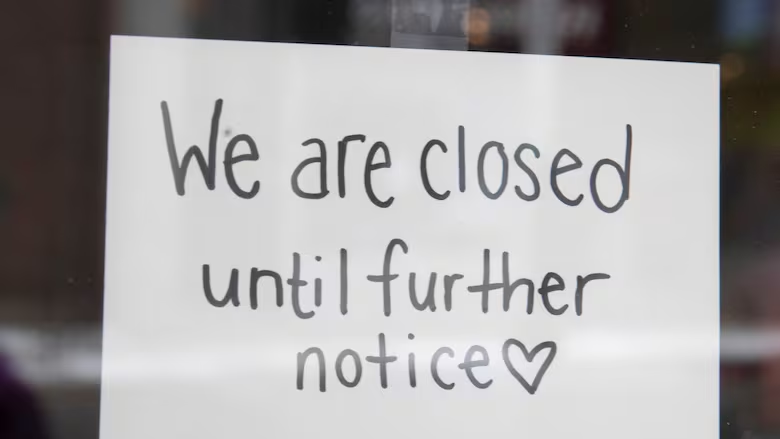Canada shed 63,000 jobs in December
Jobless rate ticks up to 8.6%

Canada's economy lost 63,000 jobs last month, the first time the job market has contracted since the dark days of March and April, when COVID-19 was just starting.
Statistics Canada reported Friday the jobless rate came in at 8.6 per cent, a slight uptick from the previous month. It was 5.6 per cent last February, before COVID-19, and peaked at 13.7 in May.
Economists had been expecting the monthly numbers to be rough, since big provinces such as Ontario and Quebec went into strict lockdowns during the month. But the number ended up being almost twice as bad as the 39,000-job drop that a consensus of economists polled by Bloomberg were expecting.
It's also the first drop since April, and a sign that the economic recovery could be running out of steam before the job market has even gotten back to where it was before the pandemic started.
As of December, Statistics Canada says there were still 636,000 fewer people with a job than there were in February. And an additional 448,000 people are working, but far less than they would normally be because of the ongoing pandemic.
Bank of Montreal economist Doug Porter noted that 2020 will now officially go down as the worst year for Canadian jobs since 1982.
On net, all of the lost jobs in December were in the service sector, with the food and accommodation sector standing out with 56,700 lost jobs, due to so many restaurants having been shuttered.
"With restrictions broadening and lengthening since the December survey, we may well see another pullback in next month's report," Porter said. "But the good news, such as it is, is that Shutdown 2 is imposing a much less severe economic cost than in the spring, especially in sectors not directly affected."
Economist Brendon Bernard with job-search website Indeed said while the numbers were certainly bleak, they are not the worst-case scenario.
"If there's a silver lining, it's that things could've been worse," he said. "December's drop was nowhere near the scale of the declines we saw last spring, and some areas of the economy, like manufacturing and professional services, still achieved solid gains."
"Nonetheless, it's clear once again that the job market can't recover amid a raging pandemic."
Participation rate drops
Leah Nord with the Canadian Chamber of Commerce was especially concerned with the fact that the participation rate — the number of working age people who either have a job or want one — fell by 0.2 percentage points to 64.9 per cent.
The drop "mostly comprised of male youth and working women, likely frustrated by the job search and staying home to take care of suddenly homebound children, respectively," she said.
If that trend continues, that's a bad omen for the job market from here on out, Nord said.
"As we look forward, we believe that many of the rebound gains of the last seven months are at risk of being lost, signalling a potential return to darker times for Canada's labour market over the coming months."
Canada's numbers for December are broadly in line with the U.S., where the job number was also about twice as bad as expected, at 140,000 jobs lost.
